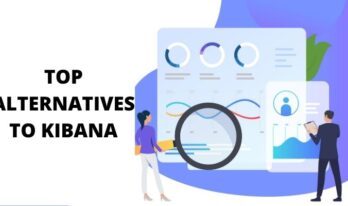Business Intelligence, or BI, is the use of systems that combine database technologies, data warehousing, data mining, and decision support systems to improve the performance and management of a business or an organization.
Business intelligence in marketing, on the other hand, is the use of BI in a marketing context, allowing you to collect data, debugging it, and process it out ready to use through an ERP and an effective CRM.
The concept of applying business intelligence in marketing is still relatively new. This is a combination of methodologies and theories of technology for collecting, structuring, processing, and analyzing data or information from business management applied to the market.
Investing in intelligence lets you know the interests and consumer trends of potential customers. Having such data enables the creation of fully customized marketing strategies and communication campaigns.
This massive data management allows us to have a greater knowledge of our environment, thus being able to make decisions with more information, so we will have greater chances of success.
Therefore, the use of Customer Relationship Management (CRM) and marketing automation platforms, among other tools, periodically collecting user data, is crucial for companies wishing to achieve competitiveness in today's market.
For a strategy guided by data that manages insights accurately and is important for strategic decision making by the company management, it is necessary that the marketing and sales teams work in tune with KPIs to organizational strategic planning.
When it comes to marketing, business intelligence offers a wide range of purpose-built software tools.
An example of this is applications that help map the customer's buying journey or applications that provide details about the source of traffic, showing, among other information, how far the lead traveled until it reached the company's website.
You need to be aware of what your business must do to integrate BI with marketing to avoid efforts on irrelevant practices:
-
- Choose the best analytics software for marketing
- Plan your actions based on data analysis
- Use dashboards to better interpret information
Also Read: Business Intelligence Process Steps for Success
These are two types of analytics that are crucial to business intelligence in marketing and are also viewed as big data elements.
Predictive Analysis
As the name suggests, it presents strategies that aim at predictability through the data.
It uses data, algorithms, and machine learning techniques in an attempt to predict future market situations and scenarios.
There is predictive analytics software that allows you to predict multiple scenarios through algorithms and information crossover.
Competitive Analysis
It involves using the data to know your competitors, to monitor what they do. This works in addition to understanding each action in the market and how consumers behave in front of these strategies.
Herein, data and information are read by advanced performance software for competitive analysis. Software crosses the numbers between different campaigns and generates valuable insights into new outcomes.
There are also behavioral analysis software and tools that map and store information about your audience. The focus is on understanding behaviors and generating campaign insights that drive your brand to where the persona is.
BI can bring innumerable benefits to marketing, as consolidated data is analyzed. This detailed data analysis, applied to the market, generates very relevant information about users and trends.
With this information we can, therefore, have much more decision-making capacity in about the day-to-day tasks of the company.
The benefits for marketing that we’ll be having using this technology would be, among others, to have a greater knowledge of its customers, markets, products, possible new markets, new segments.
Key advantages of combining BI with Marketing include:
Market segmentation, in order to focus on the ideal customer profile.
-
- Predictability
- More assertive decisions.
- Online advertising focused on the target audience.
- Greater interactivity with influencers who can spread our message.
- Better on optimization search engines
The benefits of Business Intelligence tools for marketing are even greater. BI contributes significantly to the essence of marketing, which helps reach the right audience at the right time in the right way.
Knowing how to have the right tools to deal with a large volume of information can result in a successful business strategy. Hence, listed below are some of the key tools that marketing specialists should consider getting:
SEO tools set of optimization techniques for websites, blogs, and other web pages. By generating authority and traffic for a website or blog, these optimizations aim to achieve good organic rankings.
-
- SEMrush: Tool all in one. Features on-page optimization, link building analysis, position tracking, concurrency tracking, keyword searches, etc.
- Google PageSpeed Insights: For speed optimization of your site
Marketing automation is an innovative solution that facilitates the implementation of operations related to digital marketing.
Using marketing automation, it is possible to carry out marketing campaigns in an automated way without any manual intervention.
-
- Marketo: Along with Eloqua, Marketo is one of the most expensive tools with a complete solution. The tool integrates email with social networks and ads to keep up with the consumer's journey.
- Suitable for B2B users, the solution is ABM - Account-Based Marketing. That is, it considers the actions taken by several leads of the same company in the scoring.
- Mailchimp: Mailchimp has recently entered the basic automation tools category. Known for its great email deliverability, the solution now has landing pages, automation sequences, and more. But not lead scoring, which makes it difficult to align the Marketing and Sales department.
Dashboards simplify access, visualization, and data analysis. Accessibility is made easier, as decision-makers can access information on any device, whether mobile or desktop, no matter where they are.
-
- Power BI: Microsoft Power BI is one of the cheapest BI solutions in the market. Designed and developed by Microsoft, Power BI is a Business Intelligence solution that enables organizations to visualize aggregate and analyze data from multiple sources.
- Tableau: A tableau is a software designed for data visualizations. Its ease of use has allowed it to carve out a market share as a tool of business intelligence and even big data. That makes it easier to connect to various data sources to access data for use.
You may also like to read:
11 Business Intelligence Trends in 2023




